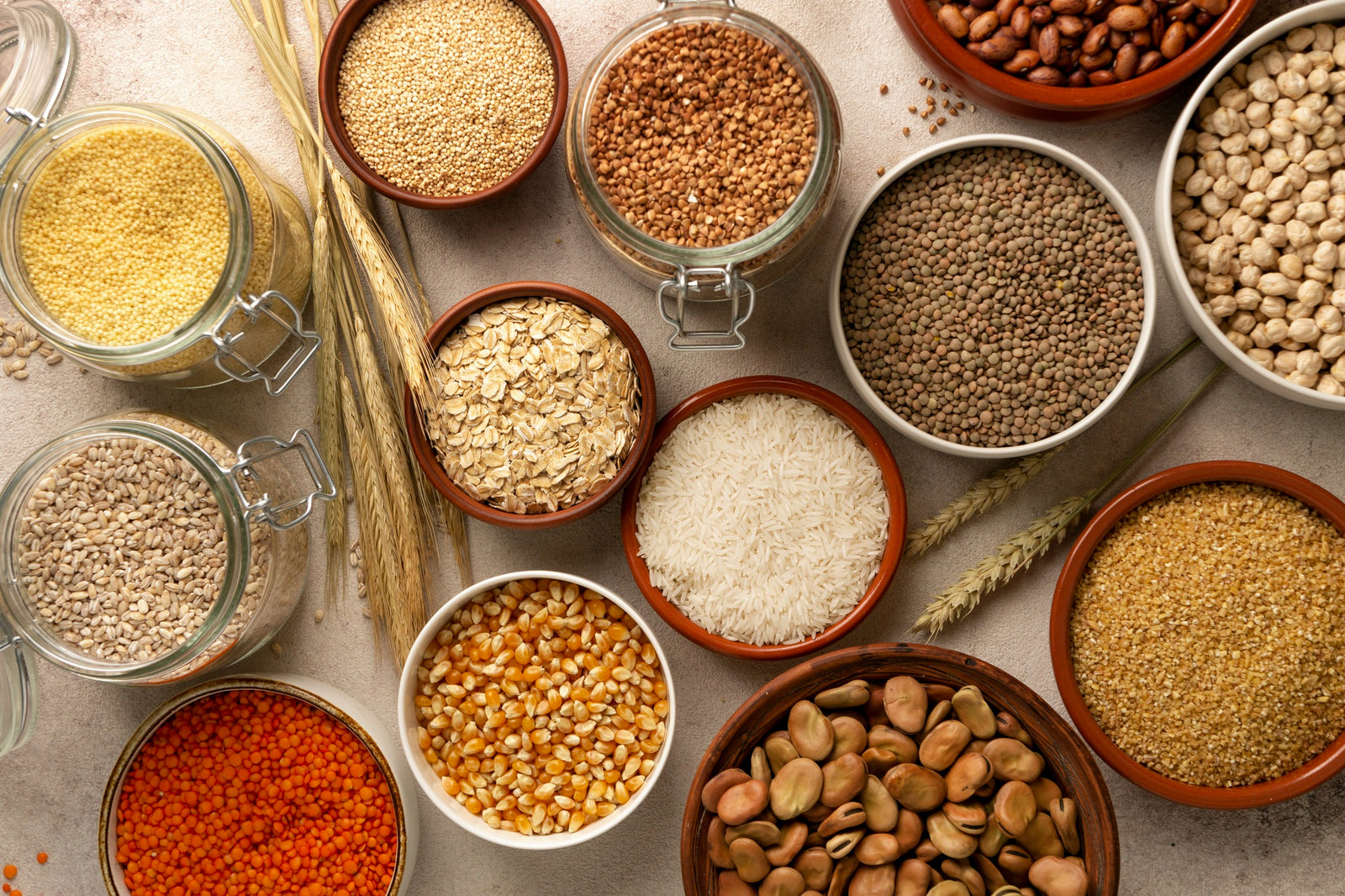
November 06, 2023 4 min read
Hulled millet, often considered a forgotten grain, is a small-seeded cereal that packs a punch when it comes to versatility and health benefits. This grain has a rich history and has been a dietary staple in many cultures for centuries. Now, it's making a comeback in modern, health-conscious diets. In this article, we'll explore why hulled millet is gaining recognition, its numerous health benefits, and how you can incorporate it into your organic diet.
Versatility at Its Best
Hulled millet is incredibly versatile. It can be used in sweet and savory dishes, and it easily takes on the flavors of other ingredients. It's an ideal choice whether you're whipping up a comforting porridge, a flavorful pilaf, or diving into gluten-free baking.
A Gluten-Free Gem
For those with gluten sensitivities, celiac disease, or individuals choosing a gluten-free lifestyle, hulled millet is a game-changer. It's a safe and delicious substitute for gluten-containing grains, offering a satisfying alternative for a variety of recipes.

A Nutrient-Rich Powerhouse
Don't let its small size fool you; hulled millet is nutrient-rich. It's a good source of dietary fiber, protein, and essential vitamins and minerals. Magnesium, phosphorus, and manganese are among the key nutrients found in millet, all contributing to overall health.
Heart Health on Your Plate
The heart-healthy properties of hulled millet are particularly noteworthy. Magnesium, a mineral found in millet, is associated with lower blood pressure and a reduced risk of heart disease. Additionally, the fiber content in millet supports cardiovascular health by promoting healthy cholesterol levels.
A Helping Hand in Weight Management
If you're on a journey to manage your weight, hulled millet can be a valuable ally. Its combination of fiber and protein helps you feel full and satisfied, reducing the likelihood of overindulging. It's a smart addition to your balanced diet when you're looking to shed a few pounds while enjoying a satisfying meal.
A Friend to Digestion
Good digestion is vital for overall well-being, and hulled millet plays a role in supporting digestive health. Its dietary fiber aids in regular bowel movements, preventing constipation and maintaining a healthy gut.

Millet is an incredibly user-friendly grain. Cooking it is a breeze. Start by rinsing the millet to remove any impurities, then toast it in a dry skillet for a few minutes to enhance its nutty flavor. After toasting, bring water or broth to a boil, add the millet, reduce the heat, cover, and simmer until the liquid is absorbed and the grains are tender. Fluff it with a fork and let it rest for a few minutes before serving.
Versatile Recipes
Millet and Your Organic Diet
For those committed to an organic lifestyle, hulled millet is a perfect fit. Look for organic millet to ensure that you're consuming a product free from synthetic pesticides and other harmful chemicals.
Organic Benefits
Opting for organic millet means choosing a product that's grown without synthetic pesticides, herbicides, or genetically modified organisms (GMOs). This supports sustainable farming practices and ensures that you're consuming a product in line with your commitment to a healthier planet.
Where to Find Organic Millet
Organic millet can be found in health food stores, local markets, or online retailers. Always check for the USDA Organic seal to verify its authenticity and ensure you're making an eco-conscious choice.

In Conclusion
Hulled millet is not just another gluten-free grain; it's a versatile, nutrient-rich, and eco-friendly addition to your organic diet. Its numerous health benefits, adaptability in the kitchen, and availability as an organic product make it a must-try for anyone looking to enhance their well-being and embrace an eco-conscious way of life. So, why not give hulled millet a place in your kitchen? Explore its countless culinary possibilities and enjoy the health benefits of organic hulled millet.
❤ Try our USDA certified Organic Hulled Millet ❤
Recipes:
Comments will be approved before showing up.

May 06, 2024 2 min read

May 01, 2024 3 min read
This article explores the differences between cane sugar and beet sugar, from their production processes to environmental impacts, highlighting why understanding these distinctions is crucial for making informed decisions about food consumption and sustainability.

April 29, 2024 3 min read
© 2024 Be Still Farms- Real, Fine Organics.
Privacy | Terms | Refund Policy | Organic Certification
